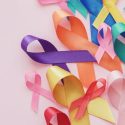Normalizing One’s Nutrition: A Key Aspect of Substance Abuse Recovery
If you become hooked on a drug, or you start using it far more than is healthy, that potentially impacts your life in many ways. You might let various healthy habits fall by the wayside. Eating right is certainly one of those.
You can look at some of the drug rehabs in Utah if you live there and you’re experiencing these issues. Once you’ve found one, you can start getting the help you need. That might involve you being part of an inpatient or outpatient program. You may also take part in group counseling or one-on-one talk therapy.
Normalizing your nutrition is another way you can start to recover. It’s a neglected aspect of getting clean, and we’ll talk about it in detail right now.
What Does Normalizing One’s Nutrition Mean?
In this context, normalizing your nutrition means eating clean, simple meals while you’re kicking the drug habit with which you’ve been living. If you have been suffering from full-blown addiction or you’ve had a fairly serious drug problem, you may not have been eating regular meals for a long time. It could be months or years since you’ve focused on nutrition.
How Do You Do It?
Whether you’re in an inpatient facility or an outpatient one, you should start reintroducing your body to simple, nourishing meals while you flush the drugs out of your system. At first, you may not be able to keep very much down. You might start with simple carbohydrates like oatmeal or cereal. You will want to stay away from anything more elaborate than that for a while.
Later, you can introduce fruit, juices, protein shakes, and things of that nature. It’s all about seeing what your body can tolerate and what it craves as you stop using your drug of choice and start rebuilding your strength.
What Other Steps Must You Take?
You might feel the urge to eat more elaborate and less healthy meals as you grow stronger and more confident. You should be cautious during this stage of your recovery, though.
Less healthy or more elaborate foods might trigger negative reactions if you try them too early during the recovery process. That’s why you need to keep such foods out of your reach. If you don’t have them in your fridge or your pantry, then you can’t ingest them.
This is easy enough if you are at an inpatient facility because the staff will control what’s there and what they serve you. If you’re doing an outpatient program, though, you might want to put a trusted family member or friend in charge of stocking the pantry and your fridge.
They can consult with your doctor and learn what foods are okay while you’re retraining your body to function without your drug of choice. Simple foods to create nutritious meals will be the order of the day for a while. In time, once you no longer have the urge to relapse, you can diversify your meals and the ingredients that go into them.



